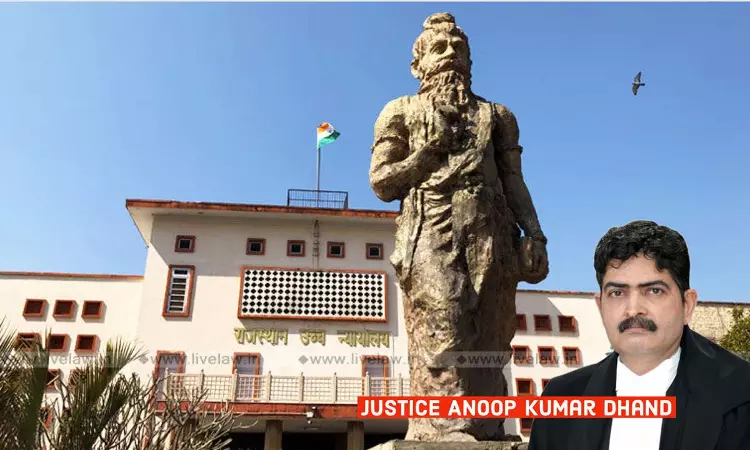- Home
- /
- High Courts
- /
- Rajasthan High Court
- /
- Board Of Revenue's Administrative...
Board Of Revenue's Administrative Power Not Akin To High Court's Supervisory Powers Under Article 227 Constitution: High Court
Nupur Agrawal
30 May 2025 10:45 AM IST
Rajasthan High Court has ruled that the power of the Revenue Board provided under Section 221 of the Rajasthan Tenancy Act, 1955 (“the Act”) is only administrative in nature and not akin to the supervisory power of the High Court under Article 227 of the Constitution. Hence, in exercise of such administrative power, no decree or judicial order could be set aside.Section 221 of the Act...
Rajasthan High Court has ruled that the power of the Revenue Board provided under Section 221 of the Rajasthan Tenancy Act, 1955 (“the Act”) is only administrative in nature and not akin to the supervisory power of the High Court under Article 227 of the Constitution. Hence, in exercise of such administrative power, no decree or judicial order could be set aside.
Section 221 of the Act grants the Board general powers of superintendence and control over all revenue courts and courts subordinate to them.
The bench of Justice Anoop Kumar Dhand was hearing a petition filed against the order of the Board of Revenue wherein while exercising power under Section 221 of the Act, order of the Revenue Appellate Authority (“RAA”) was set aside.
A suit for declaration of Khatedari Rights was filed by the petitioner which was rejected. An appeal was filed against this decision before the RAA which was allowed and the petitioner was declared as the khatedar of the land.
Subsequently, the defendants submitted an application under Section 221 of the Act before the Board which was allowed and the order of RAA was quashed. Against this, petition was moved before the Court.
It was the case of the petitioner that the powers under Section 221 of the Act were not judicial, rather were administrative powers, and hence, a judicial order could not be set aside while exercising power under this provision.
After hearing the contentions, the Court compared the superintendence powers of the Board under Section 221 of the Act, to the powers of the High Court under Article 227 of the Constitution, and held that the latter was akin to the control exercised by the Court of Kings Bench over subordinate courts in England. The power was administrative and judicial in nature.
In this light, the Court opined that,
“The power of Board of Revenue under Section 221 of the Act of 1955 is not akin to the power of the High Court, as provided under Article 227 of the Constitution of India. In the scheme of the Act of 1955, there is a clear demarcation of the judicial and the administrative powers of the Board. While Section 230 of the Act of 1955 provides for the judicial power, Section 221 of the Act of 1955 confers only administrative power and in exercise of administrative power, no decree or judicial order could be set aside.”
The Court also referred to the case of Surendra Singh & Ors. v. Kisturi & Ors. in which the division bench of the Court had come to the same conclusion regarding the power under Section 221 of the Act.
Hence, the Court held that the Board could not have set aside the order of RAA especially in light of the ruling in the Surendra Singh Case.
Accordingly, the petition was allowed, and the order of the Board was set aside.
Title: Mordhawaj v Ramwati & Ors.
Citation: 2025 LiveLaw (Raj) 191



